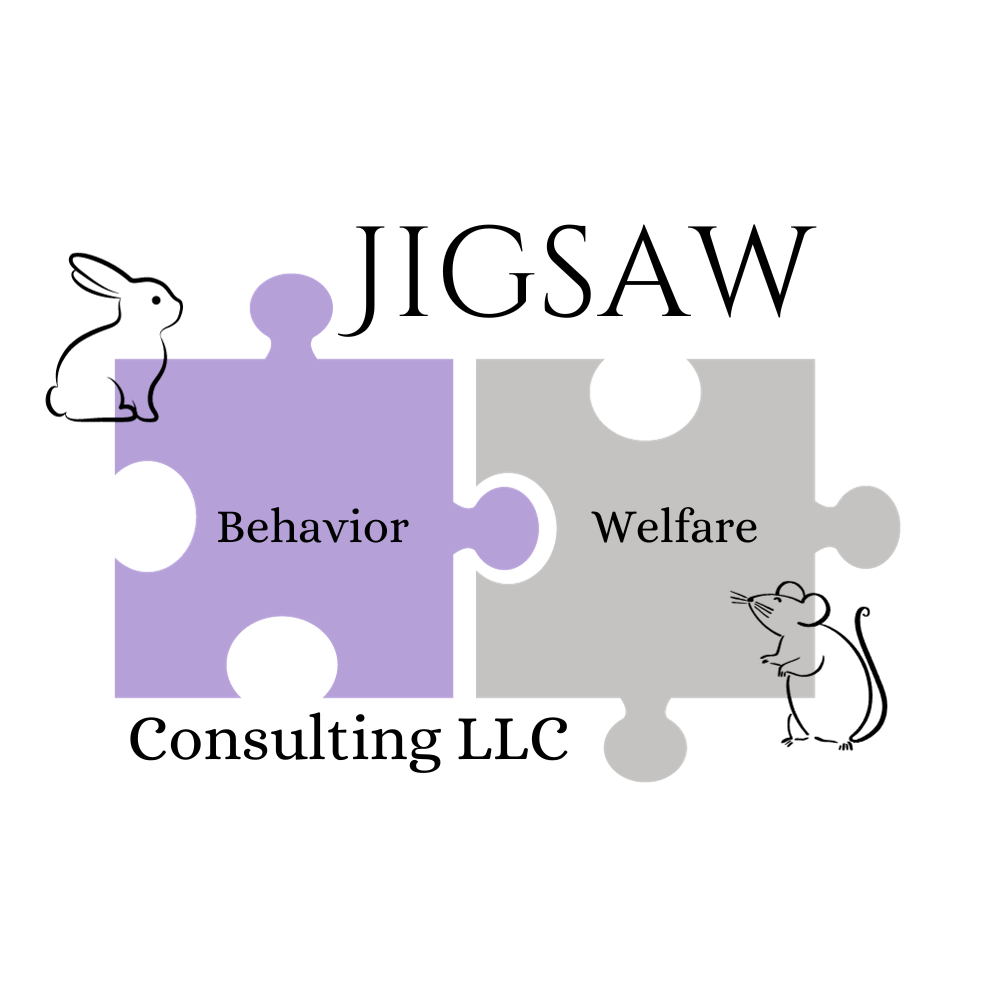How Does Animal Welfare Affect Business?
While the importance of animal welfare on the bottom line is regularly linked to the livestock industry, I think it is safe to assume that many of the effects on the livestock industry hold true for any organization that cares for and uses animals, such as shelters, zoos, and lab animal facilities. The people who work at these organizations are charged with the care of these animals in order to produce a high quality of life and, in turn, a robust end-product whether that be an adoption, an experience, a scientific discovery, or the steak in the grocery store. I’ll focus on four main areas that affect an organization’s performance:
Quality and Productivity
Consumer Choice
Regulatory and Legal Compliance
Humane Moral Responsibility
Quality and Productivity
In the livestock industry, it has been shown that animals who are handled with a more humane approach produce higher quality products. Stressed animals, or animals who are handled poorly, are more at risk of illness, lameness, and a slower rate of gain. Not only does this affect the physical animal product itself, it also costs money. Sick, lame, or weakly growing animals need medication and a large enough staff to pull those animals for treatment. This likely costs more money than simply having staff trained to handle animals appropriately and housing conditions that reduce the transmission of illness.
A lot of these same factors are going to be applicable to other industries. In the lab animal industry, animals who are healthy and behave normally are going to be less confounding to research results and will breed better. At zoos, well cared for animals will produce healthier offspring for Species Survival Programs. They will behave more appropriately for the public as they learn about their wild conspecifics. Healthy and happy pets are easier to adopt out to families and cost less in medication. The whole point of sanctuaries is to rehabilitate neglected animals. If they aren’t maintaining a high quality of care and their animals are constantly sick or showing signs of distress, then they aren’t following their mission and they are only costing themselves in terms of veterinary bills and their reputation.
Consumer Choice
People increasingly pay more attention to animal welfare when they are purchasing products. If the choice is between two similar and closely-priced products, they will likely choose the product with the humane labels. Some people will even pay more for a product that has a welfare label. Unfortunately, not everyone knows what these labels mean, especially when it comes to livestock products, so it’s important to provide that education and be transparent about your operations. For a guide to livestock product labels, see this guide by the Animal Welfare Institute.
Other labels for different industries might include accreditations. For zoos, visitors and donors might look for the AZA or ZAA accreditations when they are deciding which facility to visit or donate to. This means that, beyond legal compliance, these zoos meet even higher regulatory standards to maintain these credentials. There are different accreditations for every animal organization out there whether they be shelters, veterinary clinics, sanctuaries, and so on. People do their research on what they value and how these accreditations match their values as consumers.
Think of your animal welfare standards as part of your brand. Whenever you work with animals, you want your brand to stick out by maintaining high standards. Consider going above and beyond to elevate your image even further.
Regulatory and Legal Compliance
Let’s start with the scariest instance of why compliance is important. Violating the Animal Welfare Act can not only lead to hefty fines, but it can also lead to jail time for those responsible. Being non-compliant on animal welfare will immensely damage your company’s reputation and possibly shut you down.
Now, most responsible organizations aren’t violating the legal portion of animal welfare. However, as we mentioned before, accreditations are extremely important to creating a strong image for your organization. These extra regulations sometimes change frequently and can be difficult to maintain. Making sure to budget for consistently improving welfare and staying up-to-date on standards is important to keeping your strong professional image. With a stronger image comes more business as your brand becomes more reputable.
Humane Moral Responsibility
Finally, organizations should just strive for better welfare because we simply care about the animals we work with. We, as moral humans, want to provide a high quality of care. We want our animals to be happy and healthy because it is intrinsically rewarding. Furthermore, being a part of poor animal welfare leads to compassion fatigue, which can be represented as depression, a lack of empathy, and burn out. This can lead to a high staff turnover which will cost a company in terms of hiring and training. Why have bad feelings about the work you are doing?
If you are always striving to raise the bar in terms of animal welfare, then you will be more satisfied. You will have higher quality products and experiences for your market, a better public reputation, a stronger professional image, and lower staff turnover. Feel good about the work you do.
